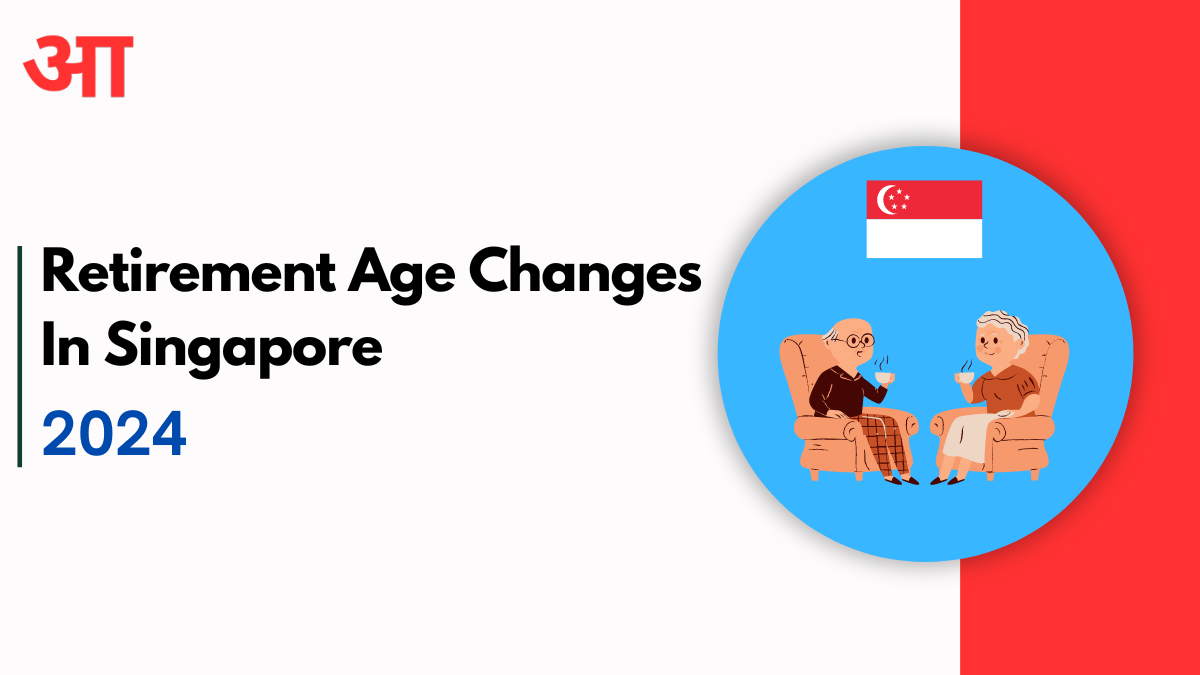The Singapore government has declared noteworthy adjustments to the retirement and re-employment ages in light of the increasing interest of senior citizens to stay engaged in the workforce. Anticipated outcomes of these adjustments include a greater potential for older individuals to extend their participation in the labor force. Nevertheless, these changes also present specific obstacles that require attention.
Contents
Retirement Age Changes In Singapore 2024
The majority of elderly individuals in Singapore have indicated their wish to keep working. Specifically, 90% of senior employees have opted to stay in the workforce and have been presented with different re-employment options. This pattern mirrors the evolving nature of Singapore’s job market and underscores the contributions that senior workers make.
Check This
The Impact of Age Changes on Workforce Dynamics
While the rise in retirement and re-employment ages has advantages, it also has certain unavoidable outcomes. One result is the emergence of a generation gap between younger and older employees, which may impact the workforce dynamics.
Disparities in perspectives, upbringings, and familiarity with rapidly evolving technology can become more prominent. In order to tackle these issues and safeguard the well-being of older employees, the government intends to implement the Workplace Fairness Legislation, which seeks to foster a fair and harmonious work environment.
The New Retirement Age: A Gradual Increase
Recognizing the necessity for older workers to remain in the workforce, the government has declared plans to incrementally raise the retirement age. In the previous year, the retirement age was raised to 63, and the age for re-employment was extended to 68. Recently, the Singaporean Government has revealed plans to further increase the retirement age to 64 and the re-employment age to 69 by 2026.
The government’s approach to this change involves four key measures:
- Government support
- Life and healthy year expectancy
- Timing and pace
- Terms of re-employment
The age thresholds are gradually implemented to achieve the target ages by 2030. This approach enables older individuals to sustain themselves financially and make economic contributions to the nation.
Conditions for the New Retirement Age
The new retirement age comes with certain conditions, which are as follows:
- Senior citizens in Singapore must have verified citizenship.
- Employees should commence working for their employer before reaching 55 and must serve for at least 2 years before reaching 63.
- The employer must evaluate work performance to ensure it meets the required standards.
- Senior employees need to be in good physical condition in order to keep working.
- According to the Retirement and Re-employment Act (RRA), the earliest age a person can retire is 63. An employer may not terminate an employee before this age.
Singapore Government Support Grants
The government has implemented multiple support grants to help employers and older workers during this transition, alongside the adjustments in retirement and re-employment ages.
Grant |
Description |
|---|---|
Part-time Re-Employment Grant (PTRG) |
Employers who provide part-time re-employment, structured career planning, and flexible working arrangements to senior workers may be eligible to receive up to S$125,000. Each qualifying company will be granted S$2,500 PTRG per resident senior worker aged 60 or older. Nevertheless, the maximum grant amount per company is S$125,000. |
Senior Employment Credit (SEC) |
Wage offsets are given to qualified employers who hire workers aged 60 or older and earn at least S$4,000 per month. The amount of wage support varies from 7 to 8%, depending on the employee’s age. |
Healthcare Benefits |
Employers are advised to revamp healthcare benefits and offer adaptable benefits and contributions to MediSave. These contributions can be utilized to cover an employee’s MediShield Life or Integrated Shield Plan premiums. |
To find out more about these and other support grants, it is recommended that individuals visit the official government website.
Who is Affected by the Changes?
Even though the adjustments to the retirement and re-employment ages will be advantageous for numerous elderly employees, specific demographics are not eligible for these modifications.
- Members of the Police, Prison, Narcotics, Civil Defence, and Corrupt Practices Investigation (Junior and Senior) Services.
- Personnel from the Singapore Armed Forces.
- Crew members in the cabin aboard commercial airplanes.
- Employees who work 20 hours per week or fewer.
- Employees who worked for less than 2 years at the organization and were initially hired after turning 55.
Conclusion
The modifications to the retirement age in Singapore demonstrate the changing requirements and capacities of the older population in the country. By offering more opportunities for elderly individuals to stay employed, the government is not only tending to their financial requirements but also recognizing their significant contributions to society.
Nevertheless, it is crucial to address the difficulties that accompany these adjustments in order to maintain a fair and harmonious work environment for everyone. For the most recent updates, individuals are encouraged to check the official Singapore Government website.
Click the link to know more.

Gaurav, an exam specialist with a passion for education, writes comprehensive articles on exam results and admit cards. His expertise ensures students receive reliable information and useful tips to excel in their exams.
